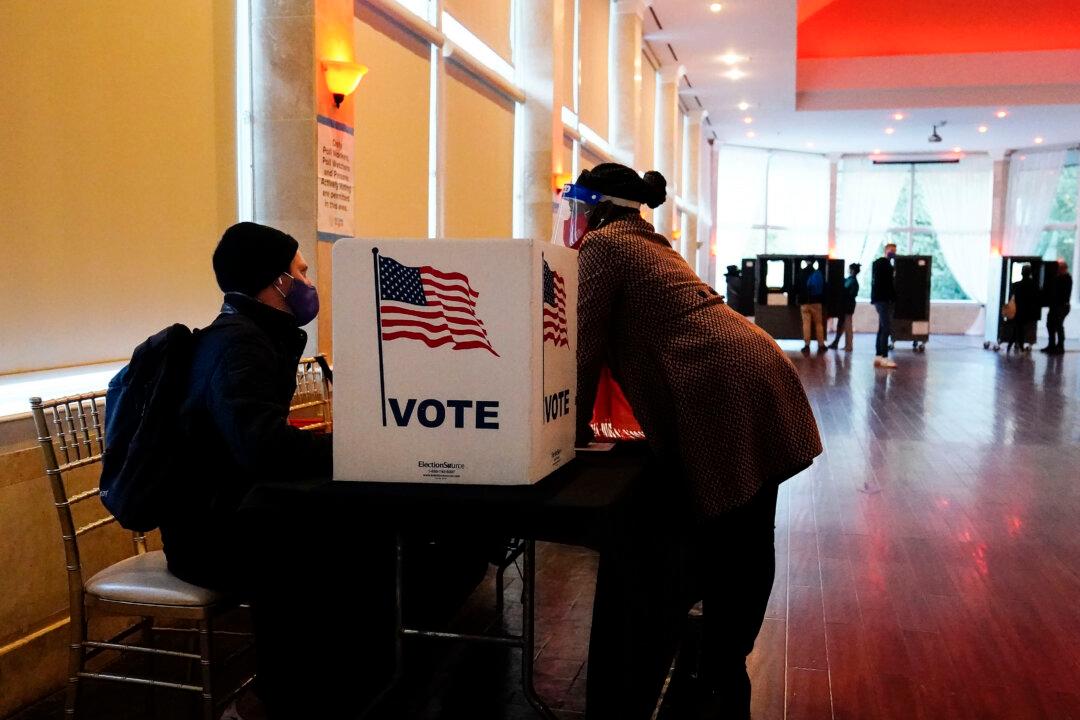Georgia’s new election integrity law is being challenged in another lawsuit, with voting rights groups on March 28 filing a suit claiming racial discrimination.
The lawsuit (pdf) was filed on behalf of a coalition of groups, including the League of Women Voters of Georgia and the Georgia State Conference of the NAACP, against Georgia Secretary of State Brad Raffensperger and other officials.





